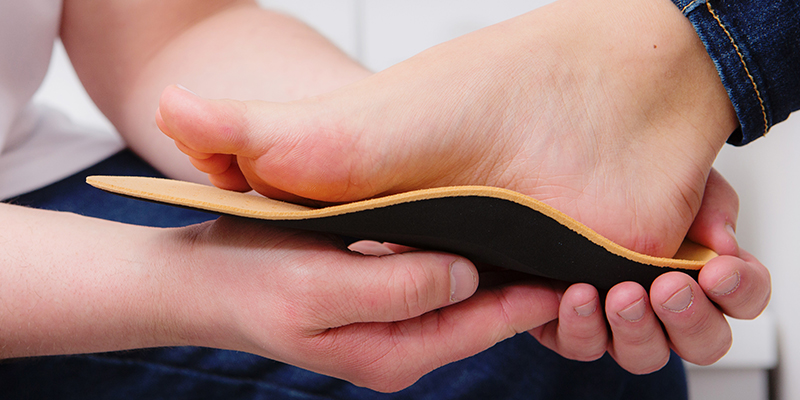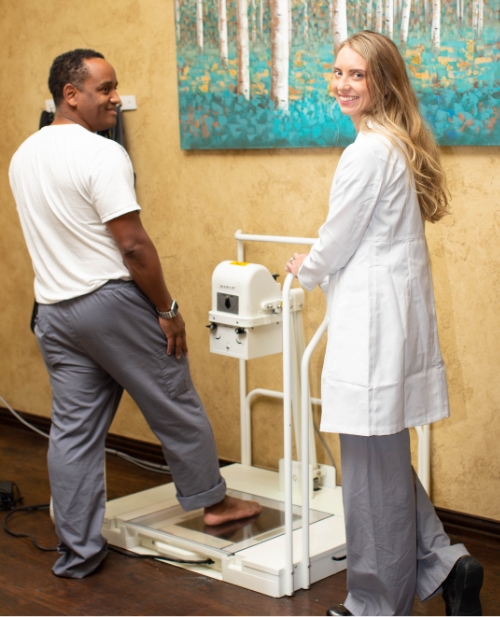
Morton’s neuroma is a painful foot condition that affects the balls of your feet. It most commonly occurs between your third and fourth toes and feels as though you are standing on a pebble or small rock. This pain is caused by a thickening of the nerves attached to your toes and will not go away on its own.
The actual cause of Morton’s neuroma or foot neuroma is not fully understood by doctors. This condition most commonly occurs in response to irritation, pressure put on the foot, or injury of one of the nerves leading to the toes. The thickening of nerve tissue is your body’s normal response to a problem with your foot nerve.
Typically there are no visible signs on the surface of the foot. The most common symptom of foot neuromas include:
- Painful feeling that you are standing on a small rock.
- Burning pain centered in the balls of your feet.
- Tingling and/or numbness in your toes.
If you have persistent foot pain on the bottom of your foot near the balls of your foot that decreases your movement it may be due to a severe Morton’s neuroma. A professional consultation from a licensed podiatrist is recommended to be sure.
Foot Neuroma Diagnosis
Dr. Verville will determine the level of severity of your neuroma and the optimal treatment options for your specific condition based on your answers to questions during your consultation and results of your physical examination at her Frisco office.
During your exam, Dr. Verville will:
- Determine the location of the pain, tenderness, and swelling caused by the neuroma.
- Note your degree of flexibility, alignment, range of motion, and reflexes of your foot and ankle in relation to the foot neuroma.
- Evaluate the optimal treatment plan for your condition.
It is critical to immediately book an appointment because over time pain from foot neuroma may become severe enough to prevent you from walking.
Treatment Options for Morton’s Neuroma and Foot Numbness
Options for treatment vary based on the length of time the neuroma has been present and the severity of pain the neuroma is causing at the time of diagnosis. While treatment will vary from person to person, foot neuromas are commonly treated by:
- Changing to more comfortable shoes.
- Using shoe supports and inserts.
- Padding and taping your foot to alleviate pressure and pain near the neuroma and balls of your feet.
- Controlling pain with medication.
- Prescription orthotic devices to help with mobility.
It is likely that Dr. Verville will combine many of these treatments to ensure that the symptoms of Morton’s neuroma are minimized or eliminated.
If you are experiencing pain and discomfort related to Morton’s neuroma, call our Frisco office at (214) 385-8822 to schedule an appointment with Board Certified Dr. Verville.







